Continued focus on increasing the impact of research on society
closure with the three generations of leadership of the KTH Energy Platform
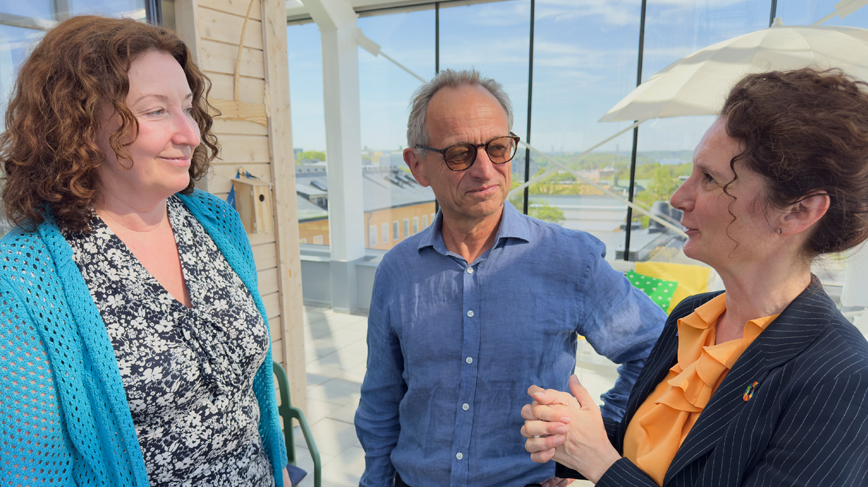
When KTH Energy Platform is wound up in June, its director, Lina Bertling Tjernberg, will take on a new role as Deputy Head of the School of Electrical Engineering and Computer Science (EECS). She will focus on research and impact and sees several ways to develop research’s voice in public debate by putting research at the center of active dialogue. Before the closure of the platform, she gathers the three generations of leadership of the KTH energy platform for a dialogue.
“KTH Energy Platform has been an important arena for showcasing our research and opening new collaboration pathways. Now, my goal is to use our experience and continue to develop, what we’ve built over the past 15 years, to become an even stronger voice in society by focusing on technology neutrality, inclusion, and sustainable developments,” says Bertling Tjernberg, who was
appointed to her new role at EECS in April.
Her new position follows a
review conducted into KTH’s research initiatives.
One result of the review is that all five schools of
KTH
will appoint a Deputy Head with responsibility for the Impact of research. In this way, there will be a clear focus on research impact in the management of
KTH
, which is a step in making research and impact part of the strategic decisions and leadership says Bertling Tjernberg.
Approaching decision makers and politicians
Following Bertling Tjernberg’s appointment as Energy Platform director in end of 2018, its voice was strengthened by approaching decision-makers and politicians, including a collaboration with
Rifo, the Association of Swedish MPs and Researchers.
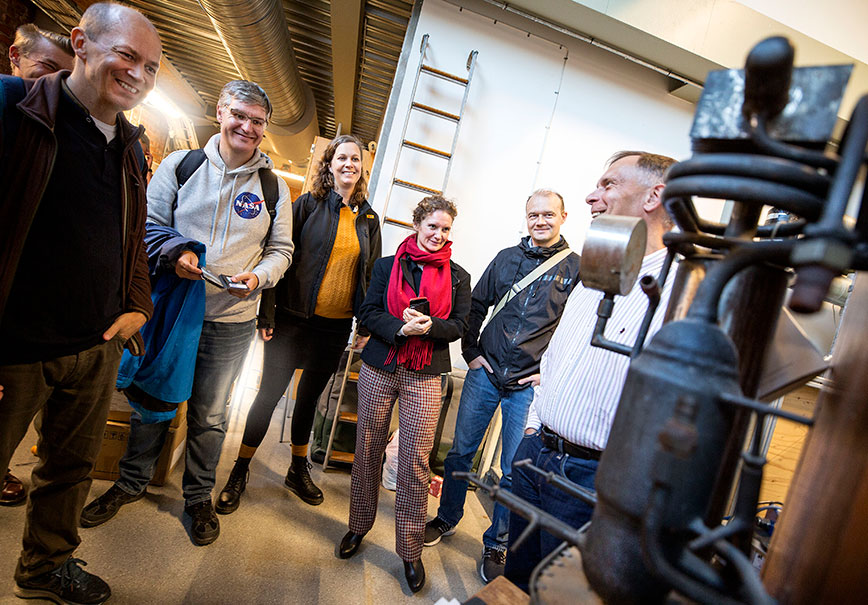
Bertling Tjernberg has often had a visible public profile, for example being voted Power Woman of the Year , being included in Swedish business daily Dagens Industri’s Energy List , and as an expert in newspapers and TV news programs.
“A key goal of my work has been to reduce polarisation in which different types of energy have been pitted against each other in the ongoing energy transition. The Platform’s goal has always been to contribute to greater technology neutrality to meet climate challenges, especially by acknowledging nuclear power’s role in the transition,” she says.
The Platform organized a number of conferences and workshops to this end, including events that focused on fusion , nuclear power , wind and solar energy , and carbon capture .
“We also highlighted the importance of being technology neutral and included nuclear power, wind, solar, and hydropower in the future energy mix. Research clearly shows that all types of energy have their role to play in the future,” she explains.
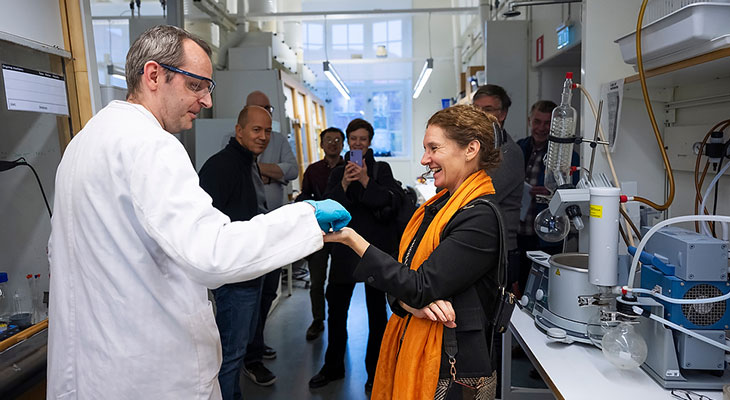
In recent years, there has also been a focus on bringing together energy researchers and projects within KTH. For example, an outreach initiative was launched in which representatives from the Platform made regular visits to research projects and labs at other KTH departments to identify projects and researchers to initiate more research projects and applications across departmental boundaries.
“Our departmental visits also meant that more researchers got to know about the Platform. And launching seed funding to start new intra-departmental projects resulted in many important collaborations,” she says.

In 2022, the Platform also produced a popular science anthology on the energy field together with Public & Science Sweden . Christopher Duwig, Deputy Director, was the driving force behind the project, which sought to build awareness of the ongoing transformation of the energy system.
“I’ve always wanted to develop the Platform into an open and inclusive arena for everyone in the energy field - irrespective of what kind of R&D you work on. Everyone has been able to turn to it for support and useful networking,” says Bertling Tjernberg.
An historical retrospective
On a sunny June afternoon, all former KTH Energy Platform directors got together: Bertling Tjernberg, Olga Kordas, and Ramon Wyss. During a free-flowing conversation that included memories and laughter, events and projects organized by the Platform were discussed.
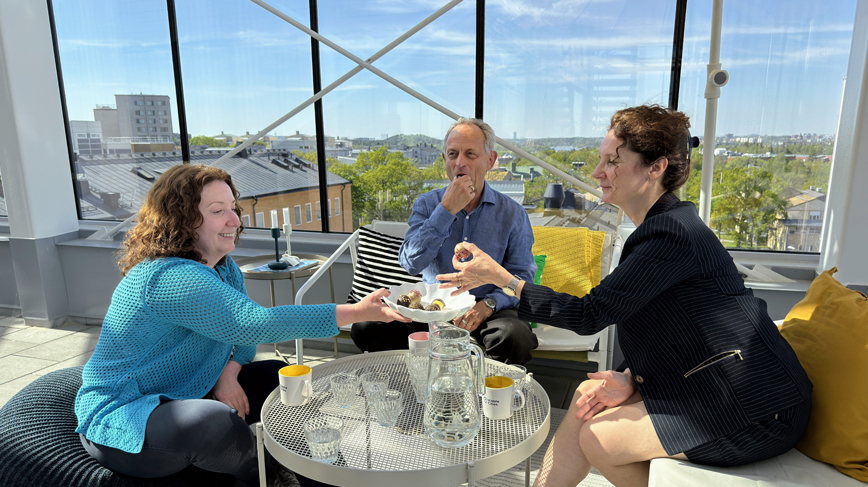
Initial resistance
KTH’s research platforms were established to increase collaboration between KTH’s various departments by encouraging interdisciplinary projects that tackled major societal challenges. The platforms were a response to the Research Assessment Exercise (RAE), conducted in 2008, which identified a lack of collaboration between departments.
In the same year, Wyss initiated a broad survey of energy research at KTH, which revealed a surprisingly high number of researchers in the energy field. It became clear that energy research had both considerable breadth and depth in several areas. The review came to lay the foundations for the KTH Energy Platform, Wyss explains.
“At first, there was some resistance to the platforms as they were outside the university’s linear organizational structure. In our platform, we solved this by inviting deans to participate, which created a greater understanding of where we could also benefit from their knowledge and experience,” says Wyss, KTH Energy Platform Director 2009-2012.
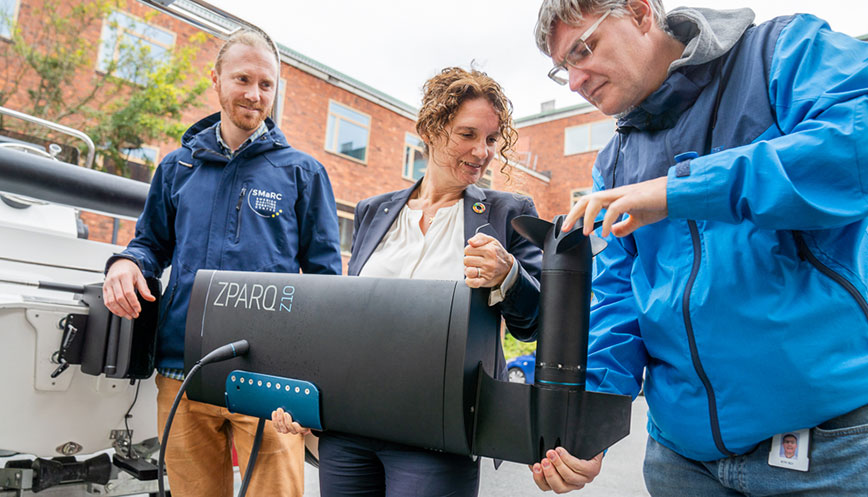
The research review was also used to raise awareness about KTH’s energy research nationally and internationally. From the outset, the KTH Energy Platform initiated a number of major EU calls for submissions. The Platform also formed the collaboration group that coordinated KTH’s participation in the European Institute of Innovation and Technology (EIT).
The Platform provided crucial funding for individual applications in terms of consultancy support and management functions, which quickly bore fruit, with nearly 90 percent of applications being granted. Among the most successful was the establishment of a center for energy studies on behalf of the European Commission, which took place within the framework of the EU’s Joint Research Renter.
The Platform’s international presence was also highlighted in an energy workshop for doctoral students in China, which later developed into the SEEEP Phd Summer School that gives doctoral students in the field of energy insights into how their own research can contribute to addressing the challenges of climate change, while at the same time gaining an international contact network.
During his time as Energy Platform director, Wyss was also Vice-President for International Projects at KTH.
A growing community
In 2012, the Platform launched the KTH Energy Dialogue event as a meeting place for academia, businesses, and authorities active in the energy sector.
“Energy Dialogue became a fantastic meeting place: it was a community that grew and really connected people and projects. The event rapidly became an important arena for energy research,” says Olga Kordas, Platform Director from 2013 to 2017.
Under Kordas’ leadership, the platform continued its collaborative work, including with companies such as Fortum, Scania, Ericsson and Stockholm Exergi. In addition, several municipalities, other universities, and research centers were involved in discussions on how to contribute to further multidisciplinary projects in the energy field. These discussions included the idea of Viable Cities: a project that supports the development of viable and climate-neutral cities.
The project eventually took off with support from Vinnova, the Swedish Energy Agency and Formas to become one of Sweden’s 17 strategic innovation programmes. The project seeks to improve Sweden’s international competitiveness by developing sustainable solutions to global societal challenges.
“The idea of supporting the development of smart and sustainable cities attracted considerable interest, and now Viable Cities is one of Sweden’s strategic innovation programs with the greatest international impact. But we wouldn’t have existed without the KTH Energy Platform,” says Kordas, who has been Programme Manager for Viable Cities since 2017.
In 2022, sustainability magazine Aktuell Hållbarhet ranked Kordas as Sweden’s 34th most powerful person working in sustainability.
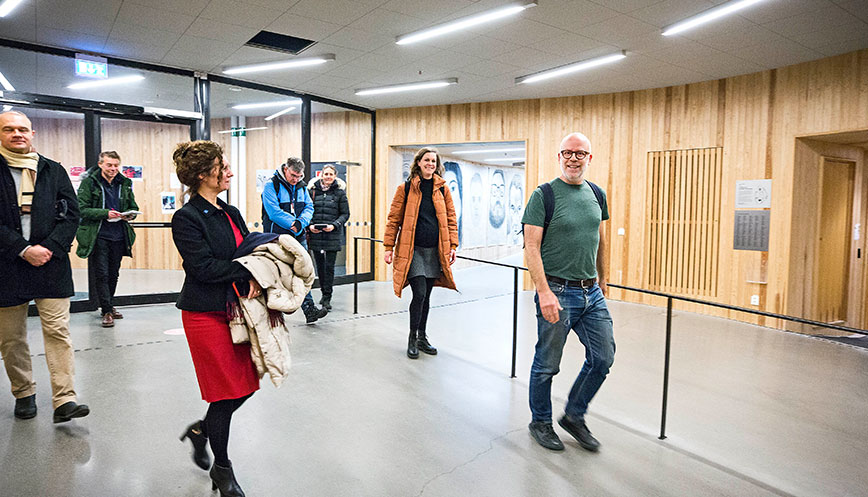
Lastly, all three Energy Platform directors speak about the benefits and pleasure the Platform has brought to everyone involved and affected by it since its formation in 2009.
“I’m so grateful for my time with KTH Energy Platform, which has been fantastic in so many ways. A big thank you goes to my Deputy Director Christophe Duwig. We’ve experienced so many positive meetings and projects as part of our work to contribute to addressing some of the challenges associated with the ongoing transformation of society,” says Bertling Tjernberg.
“Now I look forward to further developing the excellent opportunities we have in efforts to strengthen the impact of research on society.”
